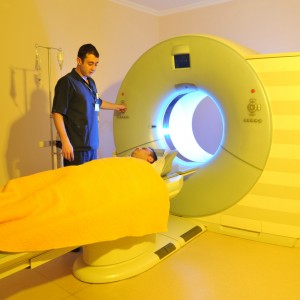 Results from a long-term analysis of the Radiation Therapy Oncology Group (RTOG) 9903 confirmed that despite the ability of erythropoietin (EPO) to raise haemoglobin levels in anaemic patients with head and neck squamous cell carcinoma (HNSCCa), it does not improve outcomes when added to radiation therapy. The results are published in the International Journal of Radiation Oncology * Biology * Physics.
Results from a long-term analysis of the Radiation Therapy Oncology Group (RTOG) 9903 confirmed that despite the ability of erythropoietin (EPO) to raise haemoglobin levels in anaemic patients with head and neck squamous cell carcinoma (HNSCCa), it does not improve outcomes when added to radiation therapy. The results are published in the International Journal of Radiation Oncology * Biology * Physics.
RTOG 9903 was a Phase 3 open label randomized controlled trial that included HNSCCa patients treated with definitive radiation therapy (RT). Of the 141 patients enrolled in the study, 69 patients were randomized to receive radiation therapy or chemotherapy plus radiation, and 72 patients were randomized to receive radiation therapy or chemotherapy plus radiation with EPO. Patients were required to have baseline haemoglobin levels ranging from 9.0 to 13.5 g/dL (12.5 g/dL for females).
EPO (40,000 U) was given to patients every week starting 7 to 10 days before the initiation of RT in the radiation therapy plus EPO study arm. After study enrollment, four patients were non-eligible, and three withdrew. The baseline average haemoglobin level was 12.1 g/dL. After four weeks, in the radiation therapy plus EPO study arm, the mean haemoglobin level increased by 1.66 g/dL, and decreased by 0.24 g/dL in the radiation therapy study arm.
After five years of follow-up, the results showed that for the radiation therapy plus EPO and the radiation therapy alone study arms, local-regional failure rate was of 46.2% versus 39.4%, local-regional progression-free survival rate was 31.5% versus 37.6%, and the overall survival rate was 36.9% versus 38.2%, respectively.
[adrotate group=”1″]
At five years follow-up, the rate of distant metastases was of 14.5% for those patients who did not receive EPO, and of 15.6% for patients who were given EPO. Regarding late toxicity the results showed no statistically significant differences between the two study arms.
“It is well-known that cancer patients with anemia (low hemoglobin) have lower cure rates than patients with normal hemoglobin levels. RTOG 9903 was aimed at improving the outcomes of anemic patients with head and neck squamous cell carcinoma by restoring their hemoglobin levels to normal,” said George Shenouda, MD, lead author of the study and an associate professor of oncology and otolaryngology at McGill University Health Centre in Montreal in a recent news release. “The initial analysis of the results was unexpected and led to the study’s early closure because of a possible detrimental effect of EPO. While EPO improved hemoglobin levels, the control rates were not similarly improved. This long-term analysis confirms that EPO is not the appropriate treatment option for our anemic HNSCCa cancer patients. It is important for us to be aware that EPO is a growth factor and as such, may stimulate the growth of cancer cells, resulting in decreased tumor control. Carefully designed clinical trials are required to address how to treat anemia in our cancer patients.”


